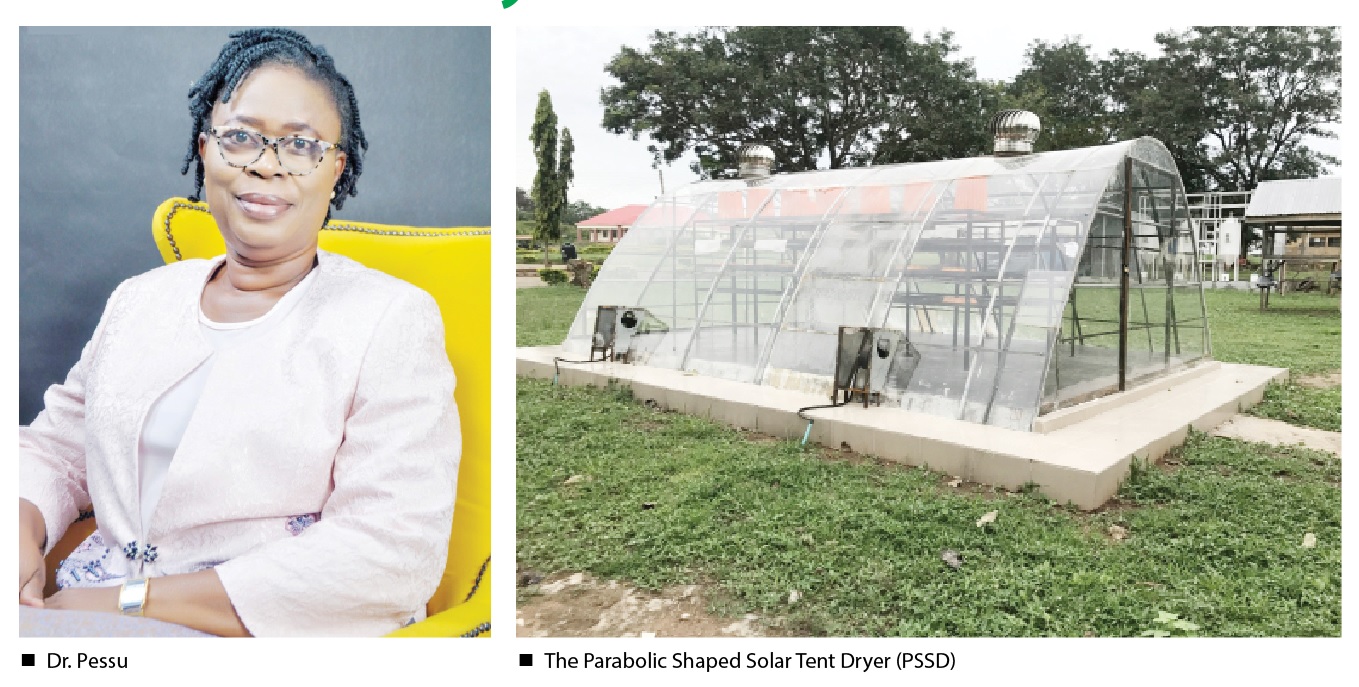Grains farmers can now dry their produce in a matter of hours and store them for more than three years without the use of chemicals, thanks to a new preservation technology developed by the Nigeria Stored Products Research Institute (NSPRI).
NSPRI, an agency of the Federal Ministry of Agriculture and Rural Development under the supervision of the Agricultural Research Council of Nigeria (ARCN), is the research institute with the sole mandate to conduct research, disseminate and build capacity into post-harvest management of agricultural produce.
It has its headquarters in Ilorin, Kwara State, with four zonal offices in Kano, Lagos, Ibadan and Port Harcourt and two out-stations in Sapele and Maiduguri.
Daily Trust Agric Editor, who recently visited the institute’s headquarters in Ilorin, was shown the new inventions developed to provide farmers and produce dealers with post-harvest solutions to agricultural crops, mostly grains.
In an exclusive interview, Dr. Patricia Pessu, Acting Executive Director of NSPRI, while admitting that the use of chemicals for the control of insect pest is yet to be properly regulated in Nigeria, noted that, led to their misuse by farmers, grains handlers and grains merchants, thereby leading to negative impacts on our health and environment.
She said researches are ongoing to seek alternatives to chemicals and that one of the outcomes was the development of the followings:
NSPRIDUST
An efficient insect control technique in integrated pest management programmes of stored grains, NSPRIDUST is a diatomaceous earth-based grain protectant against insect pests’ attacks.
NSPRIDUST, Dr. Pessu explained, abrades and absorbs lipids from the epicuticular wax layer of insects, causing loss of body water and eventual death within hours or days. When applied to dry grains of moisture content 13% or below at the rate of 0.1% weight/weight, the product kills most stored grains insects, suppressing their progeny emergence.
She said the produce can be applied to grains as powder or used in form of slurries for surface treatment in silos and warehouses, adding that the product is without any known mammalian toxicity as opposed to synthetic chemicals.
“Pilot scale studies have been conducted in storehouses located within the institute on maize in 100kg capacity bags, sorghum and maize in 25kg capacity bags and metal silos. There are evidence of effectiveness from both laboratory and pilot scale testing of NSPRIDUST which confirm it as a potential reduced-risk grain protectant that can be incorporated into IPM for stored grains.
Inert Atmosphere silos
The acting executive director said the use of inert atmosphere silos in Nigeria dates back to the 1980s and that the first sets were designed and constructed by Italian partners and that involved the use of sophisticated gadgets which made it difficult for farmers to easily adopt.
“NSPRI then redesigned the storage structure to be manually operated. It is a cylindrical structure made of metal used for storage of bulk grains. Unlike other conventional silos available in the country, this system utilises nitrogen to create inert environment.
“The Inert Atmosphere Silo has been tested in all the ecological zones of Nigeria and found effective and efficient in the storage of grains for more than three years without the use of insecticides. This system has been successfully used for storage of paddy rice, sorghum, wheat, maize, cowpea and groundnut,’’ she said.
Dr Pessu also said the technology has some considerable advantages and benefits over other types of silos due to some special features, among which are;
– It does not involve use of insecticides; thus absence of residues in stored crops that could cause food poisoning. It protects operators from hazards of insecticides and there is elimination of resistance to insecticides by insects.
– The system ensures total mortality of all stages of insects and prevents re-infestation.
– It has greater potential to maintain grain quality, germinability and viability of stored seeds. It is the only silo that has successfully stored cowpea for three years in Nigeria.
– Prevention of moisture migration and condensation, hence caking does not occur.
– It is more economical to use.
– Its operation only entails the use of nitrogen which is very cheap compared to insecticides.
– In addition, the cost of labour and frequency of application is far less compared to what is obtainable in insects control in conventional silos.

Series of solar dryers
Dr. Pessu told Daily Trust that NSPRI has developed series of solar dryers (Dwarf wall, Mobile solar, Multicrop tent and the latest one, which is a multi-crop dryer known as Parabolic shaped solar dryer.
She said the parabolic shaped solar dryer is made of transparent acrylic polythene materials which are able to generate solar heat capable of drying most of the perishable crops. The dryer has two aspirators to suck away moisture from the dryer.
“It has two solar power fans to circulate heat evenly in the chamber, it also has insulated floor built with polyurethane material to check heat loss.
“The parabolic shaped solar dryer can be used for drying various agricultural produce under hygienic conditions. The dryer is capable of drying such crops as plantain (unripe), beans, ginger roots, powdered pap, okra, pepper, tomatoes, leafy vegetables, low fat fish (panla), grains, mango chips, cassava chips etc,’’ she added.
She said the drying time for crops could be a couple of hours or days depending on the crop being dried.
“With this technology, there is high level of hygiene and conformity to international standards. Comparatively, this solar dryer is not only economical but also friendly to the environment because solar drying system uses 100% renewable energy,’’ she hinted.
How to access the new machines
The acting executive director said the institute cuts across the geopolitical zones of the country, from its headquarters in Ilorin and four zonal offices in Kano, Lagos, Ibadan and Port Harcourt as well as two out-stations in Sapele and Maiduguri. The offices, she said, are opened to farmers who may wish to visit and personally see the technologies.
“We have also made a major inroad into making rural farmers aware of our technologies by using the adopted villages’ concept. Here, our technologies are taken to the farming villages to support their agricultural production in terms of processing and storage activities.
“Similar to the adopted villages are the adopted schools under this scheme. Sensitization of students is done in order to build their interest in agriculture as a subject and probably as a career later in life,” she stated.
Recently, we selected 30 bush/farmers markets in Kwara State where our technologies were displayed and demonstrated fortnightly. As from 2020, we intend to extend what we are doing in Kwara State to at least all the states where our offices are located and thereafter to other states across the country,’’ she said.




